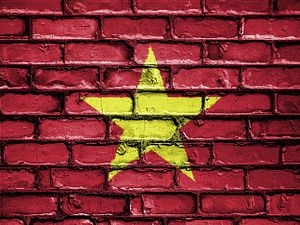On June 7, Vietnam was officially elected as a nonpermanent member of the United Nations Security Council (UNSC) for the 2020-2021 term by a near unanimous vote. While the specifics of Hanoi’s stint will play out in the coming years, the development is set to spotlight Vietnam’s foreign policy outlook and the opportunities and challenges.
As I have observed before in these pages, while Vietnam’s foreign policy is often the subject of episodic focus, coverage can distort the sense of Hanoi’s wider approach to the world, which involves, among other things, strengthening ties with neighboring states in the Mekong subregion where it exercises significant influence, playing a more active role in the wider Southeast Asian region, and cultivating links with a range of major powers – be it newer relationships such as with the United States in the post-Vietnam War context or older ties with China and Russia, which remain important despite lingering challenges.
Part of Vietnam’s foreign policy has been its role in the United Nations, which it joined in 1977 following the unification of North and South Vietnam under a socialist government in 1976 after the end of the Vietnam War. Vietnam has since seen the UN as both a means to raise its profile as well as an outlet for the advancement of the country’s own priorities on various functional issues including peacekeeping. One manifestation of this has been its holding of a nonpermanent seat on the United Nations Security Council (UNSC), which Vietnam has done once before, back in 2008-2009.
Over the past few years, Vietnam has been indicating its desire to once again hold a nonpermanent seat at the UNSC. And after some initial sounding, indications were that a seat for Hanoi was all but secure during the 2020-2021 period. Vietnam was running uncontested for the Asia slot this time around, with Indonesia already winning its seat last year, with effects for its wider foreign policy.
Last week brought the confirmation that Vietnam had won its bid for the UNSC seat. The election results, announced Friday, saw a near unanimous vote for Vietnam, confirming that it will join Estonia, Niger, Tunisia, and Saint Vincent and Grenadines in January for a two-year stint on the Security Council, beginning in January 2020. It also means that two of the five non-permanent UNSC seats will be held by Southeast Asian states next year, as Indonesia and Vietnam overlap by a year in their two-year stints.
Vietnam’s stint at the UNSC will highlight some of the key opportunities Hanoi would like to advance but also the challenges that are evident in its foreign policy outlook. In terms of Vietnam’s own priorities, during its campaign for the seat and in comments thereafter, officials have indicated that they would generally include areas such as promoting sustainable development and advancing preventive diplomacy, drawing on Vietnam’s own historical experience with war and peace as well as contemporary events such as its hosting of the second Trump-Kim summit. And in terms of the challenges therein, Vietnam’s own issues with respect to human rights as well as the divisions that have characterized the UNSC more generally mean that Hanoi’s stint will not be short of hiccups.
More broadly, it is important to keep in mind that Vietnam’s time at the UNSC will also be just one component of what is set to be a busy year for Vietnam’s foreign policy. In addition to its role at the UNSC and other priorities, Vietnam will also hold the chairmanship of the Association of Southeast Asian Nations (ASEAN) as well next year. And while there will be a range of issues at play there, the headlines leading up to it will no doubt dwell to some degree on the reverberations from Vietnam’s 2010 chairmanship, which coincided with then-U.S. Secretary of State Hillary Clinton’s oft-cited articulation at an ASEAN Regional Forum (ARF) of what was read as a tougher U.S. stance on the South China Sea issue in the face of China’s growing assertiveness.
To be sure, individual UNSC stints tend to be the subject of occasional, issue-based headlines, rather than more strategic, ongoing assessments. But those wider dynamics will be important to focus on during Vietnam’s UNSC tenure given its significance for Hanoi’s evolving approach to the region and the world.

































